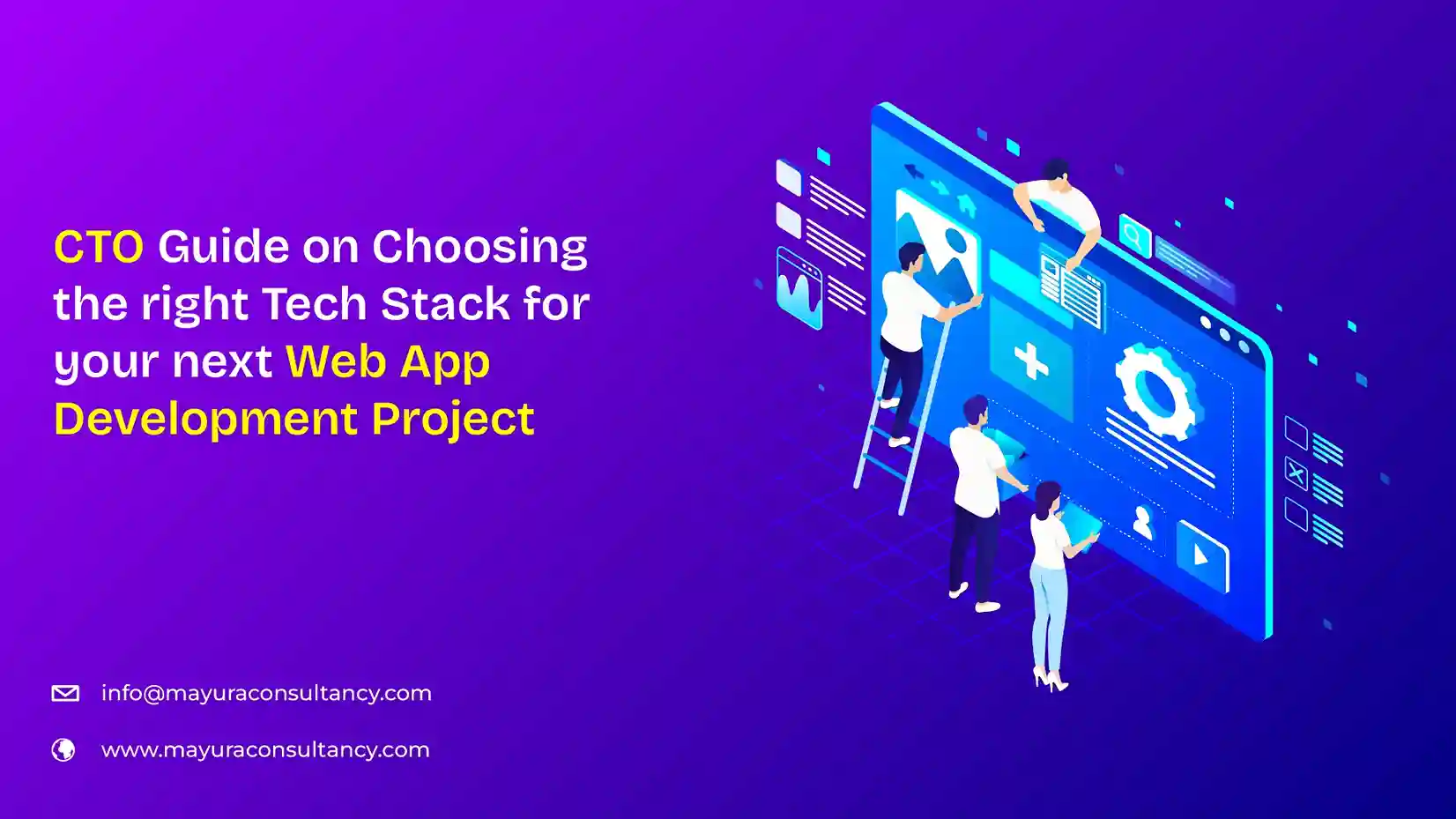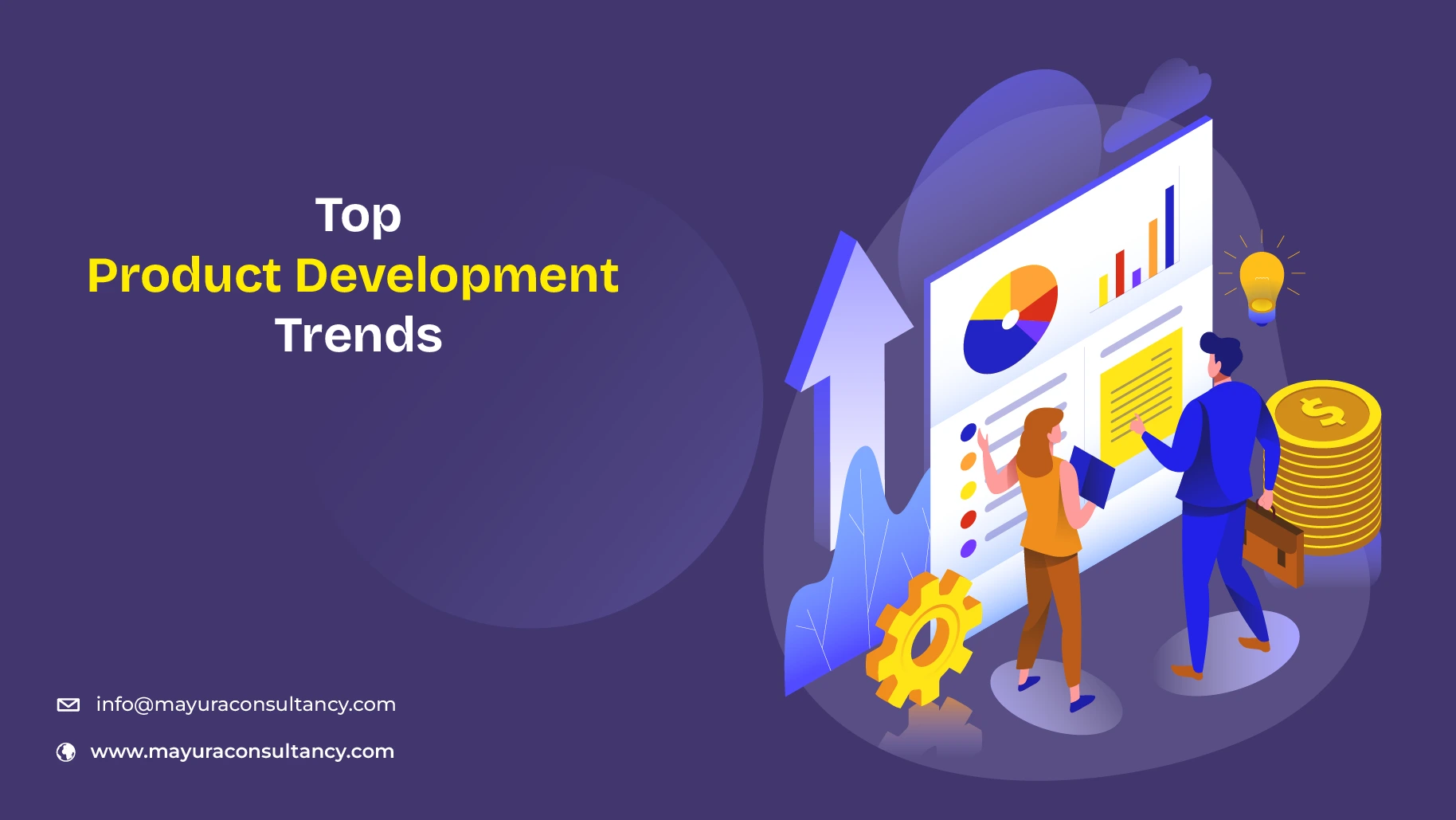Internet of Things (IoT) technology has revolutionized businesses through the digitization of physical devices, data collection, automation, downtime reduction, and many other ways. This has resulted in significant growth in the IoT market in recent years, and the trend will continue in the coming years.
Businesses across industries, especially manufacturing, healthcare, automotive, logistics, retail, and agriculture, are incorporating IoT technologies to enhance efficiency, reduce costs, improve safety, and provide better services, resulting in revenue and profit growth. Companies are looking to leverage IoT, but what lies ahead for evolving technology in the coming years?
Looking at the development around IoT, such as Edge Computing, Artificial intelligence & Machine Learning, and others, the future looks very exciting. In this article, we will enumerate the top IoT trends and discuss the benefits of implementing this exciting technology in businesses.
This Article Contains:
What is IoT?
The Internet of Things is a network of Physical objects equipped with software, sensors, and other tools and technologies. The purpose is to share data with other devices via the internet. The devices can be wearables, appliances, industrial machines, healthcare, and monitoring devices among others.
What Are the Top IoT Trends for 2024?
IoT has a wide range of applications and many new trends are emerging that can transform businesses by improving efficiency and helping them make data-driven decisions.
According to a Fortune Business Insights report, the global IoT market size was valued at $595.73 in 2023 and is expected to grow at a CAGR of 24.3% to reach $4,062.34 billion by 2032. This shows massive growth ahead for IoT. Here are the 11 latest IoT trends in 2024.
1. AI-Powered IoT Devices
Artificial Intelligence is one of the top technologies impacting almost every industry, including the IoT. AI complements IoT apps and devices and makes them more powerful. IoT devices and apps are data sources, but these raw data are only useful with analysis.
Integrating AI and ML in IoT enables businesses to extract insights from the raw data. For example, IoT sensors can collect data from factory equipment, which can be analyzed using machine learning algorithms to determine how the devices are performing and when they need servicing.
This practice is known as predictive maintenance which has significantly reduced downtime, maintenance cost, and improved productivity, making it one of the top IoT trends to watch out for in 2024 and the coming years.
2. Blockchain in IoT Security
Blockchain is revolutionizing business in many ways, including secure transactions, data security, transparency, cost efficiency, and more.
Integration of blockchain technology is among the top IoT trends to watch in 2024 and beyond. Blockchain's robust security feature is one of the reasons why it is so critical for IoT security.
For instance, its decentralized and distributed ledger system plays a critical role in securing the large volume of data throughout transmission. By adopting this technology in IoT, enterprises can prevent unauthorized access and tampering, enhance data integrity, and facilitate transparent communication between IoT devices, reducing the chances of cyber attacks.
3. Adoption of IoT in Industrial Automation
Industrial automation reduces the need for human intervention in manufacturing processes. This improves production speed, reduces errors, and increases safety, helping manufacturing companies reduce production costs and utilize their resources better.
Adopting IoT in industrial manufacturing machines facilitates automation as IoT-powered devices ensure faster and more seamless data transmission in real time, allowing systems to automate processes and improve efficiency. IoT-enabled manufacturing machinery can self-regulate or switch capabilities based on various data inputs.
For example, a manufacturing machine can start, stop, or adjust production capabilities at certain times to maintain optimal performance and prevent breakdowns.
4. Incorporation of IoT in Smart Office
The application of IoT in the office allows businesses to control various devices and systems without manual intervention. Smart sensors and connected devices can also collect real-time data on energy consumption, interior temperature, carbon dioxide levels, and other functions to optimize energy consumption and create a comfortable working environment. This helps in ensuring employee well-being and cost savings.
Take the case of smart lighting and HVAC systems that can adjust the brightness and temperature level based on the natural light and interior temperature, air quality, and occupancy, enhancing comfort levels to boost productivity.
Besides that, the latest office security systems can collect data through IoT-enabled cameras, and access systems help monitor office premises to ensure the security of employees and resources.
5. Implementation of IoT in Healthcare
Digital technologies have revolutionized the healthcare system, and IoT has played a critical role. The healthcare industry leverages many devices and software systems for diagnosis, clinical management, treatment and research, and many others.
IoT-enabled devices help healthcare providers collect real-time data about the patient's heart rate, blood pressure, glucose levels, and many other ways remotely, allowing doctors to detect anomalies and vital signs. This empowers them to intervene in a timely and suggest a treatment plan.
Remember the time when Covid 19 pandemic crippled the world and forced people to stay in their homes. Patients in critical conditions had to avoid visiting hospitals and resorted to virtual consultations, digital diagnostics, and remote monitoring.
A Mordor Intelligence report shows that IoT in healthcare market size will be valued at $147.44 billion by 2024 and is projected to grow at a CAGR of 18.74% to reach $348.03 billion by 2029.
6. Edge Computing for Faster Data Processing
The adoption of Edge computing in IoT is among the top IoT trends due to the growing demand for quick data processing. This technology significantly reduces the latency in data processing and boosts data security.
By processing data closer to where it is generated instead of sending it to the centralized server, edge computing reduces the time for data analysis, which is essential for real-time IoT-enabled applications. Additionally, edge computing also minimizes bandwidth usage, helping businesses reduce operational costs.
As an example, smart manufacturing units with IoT sensors can detect performance issues, defects, and anomalies in real time, allowing timely interventions and reducing production downtime and risks of data breaches.
7. Application of IoT in Smart City
With growing concern over climate change, air pollution, waste management, and sanitation, every country is investing in smart cities. As per a McKinsey report, smart cities can improve some key quality-of-life indicators by up to 30 percent. IoT is playing a crucial role in making cities smarter and more sustainable.
From water and air pollution level monitoring to healthcare and traffic management, IoT helps in transforming cities. IoT-enabled devices, sensors, and applications can collect and process vast amounts of data on various aspects of city life, like energy consumption, air quality, water quality, drainage system, traffic management, and others.
This helps authorities take timely action to minimize pollution and diseases, streamline traffic flow, and provide citizens with a better quality of life.
8. Integration of IoT in Metaverse
Metaverse is an immersive virtual world where users can interact with each other, work, travel, or shop together, sitting anywhere in the world. Due to this, the excitement around this technology is touching new highs every day.
As the Metaverse relies on immersive environments, IoT plays a critical role in blending the virtual environment with the physical world, maximizing its capabilities.
For instance, IoT sensors can replicate physical movements, gestures, and environments within the metaverse in real time, developing a more realistic and engaging user experience. Additionally, IoT-driven data analytics can help businesses gain insights into user behavior and preferences, enabling them to create more personalized virtual environments and user experiences.
9. IoT Powered with 5G Technology
The 5G rollout has emerged as a game changer for businesses due to affordable and easy access to high-speed internet. The low latency ensures minimal disruption in data transmission, ensuring enhanced connectivity, streamlined operations, and better user experience.
A Statista report reveals that there will be 2048.59 billion 5G users worldwide by the end of 2024, and it will reach 4624.11 billion by 2028. The faster and more reliable internet will help businesses deploy IoT at every stage of their operations, helping them unleash the full potential of technology.
Consider the implementation of 5G in logistics management. IoT-enabled sensors help transportation and logistics companies track vehicles, monitor driver behavior, and optimize routes in real-time, helping them improve fleet efficiency, reduce fuel consumption, and improve safety.
10. Digital Twins
Digital Twins has emerged as one of the top IoT trends in recent times, and we may see more applications of this technology in the near future. It is a virtual representation of a physical object or system that uses real-time data and advanced analytics to reflect the physical object accurately.
For instance, machinery in a manufacturing plant is equipped with sensors and IoT devices that collect data like temperature, pressure, stress, strain, energy consumption, output quality, efficiency, and others. This data helps companies analyze performance issues and address them to improve the original physical device.
11. Voice-Enabled IoT Devices
Voice-activated IoT devices are among the latest trends in IoT that are gaining popularity recently due to the convenience they offer in day-to-day activities. According to an Astute Analytica report, the global voice assistant market was valued at $5,730.6 million in 2023 and it is projected to grow at a CAGR of 26.45% between 2024 and 2032.
Voice assistants like Alexa, Siri, Google, and Cortona are already very popular due to their unique features, fulfilling customers' needs in many ways.
In a smart home, voice-activated IoT devices such as smart speakers with built-in virtual assistants can control various systems like air-conditioning, lighting, appliances, and other devices with voice commands. Businesses can leverage these trends to enhance user experience and gain a competitive edge.
Top 6 Benefits of Implementing IoT for Business
Applying IoT in business offers many advantages. Let us look at the top benefits of this technology.
1. Operational Efficiency
The Internet of Things operates without manual intervention since it relies on machine-to-machine data transfer and processing, facilitating automation. It improves operational efficiency and better utilization of human resources.
2. Safety of Industrial Workers
The IoT technology empowers businesses to identify defects in their machines and systems that might be risky for workers. Additionally, IoT sensors can detect fires, gas leaks, trespassing, and other hazardous situations and inform the emergency response team immediately.
3. Cost Saving
Leveraging IoT can help businesses save costs in multiple ways, including monitoring the performance of costly equipment to detect potential issues before costly breakdowns, streamlining operations, and improving efficiency.
4. Enhanced Data Security
Data security is a major concern across the globe due to the increasing threat of cyber security. IoT devices have security features like encryption, access control, network traffic monitoring tools, and others that significantly reduce vulnerabilities. Additionally, IoT can identify potential security threats in real time, which helps in preventing cyber attacks.
5. Data-Driven Decision Making
IoT devices generate large volumes of data at every stage of business operations. It enables them to gain insights into device performance, customer behavior, preference, market condition, and other factors, helping them make informed decisions.
6. Sustainability and Positive Impact on the Environment
Smart sensors in IoT devices ensure optimal usage of resources like water, energy, and other resources based on demands, reducing waste. Additionally, IoT-powered devices can monitor soil health, crop condition, efficient waste management operations, reducing pollutants and greenhouse gas emissions, and fuel usage, facilitating sustainable development and making a positive impact on the environment.
Why Hiring the Right IoT Development Partner is Important?
IoT is an evolving technology that can make a long-term impact on your business. Hiring an IoT development company with a proven track record can help you unlock the full potential of the technology, contributing to business growth. Here are the reasons why you should hire a Top IoT development company.
1. Faster Development
An experienced IoT development company has the right skills and extensive industry experience to accelerate the development and complete the project on time. This helps businesses to take advantage of the market opportunities and stay ahead of their competitors.
2. Reduced Risk
Top IoT development partners like Mayura Consultancy Services have a proven track record of completing complex projects. They can also identify potential risks, address them before and during the development, and follow the industry's best practices which significantly reduces the risks of project failure.
3. Flexible and Scalable Solution
Scalability and flexibility are critical factors to consider when hiring an IoT development partner. As IoT technology is expanding in leaps and bounds, choosing a talented development partner will ensure they deliver a scalable and flexible solution.
At Mayura Consultancy Services, we follow the recent trends in Internet of Things and employ the Agile development methodology to build a scalable solution that can meet your growing demands.
If you want to know more about the Agile Development Methodology, consider reading our blog, Ultimate Guide to Agile Software Development for Your Business in 2024.
4. Customized Solution
Every business is different and has its own set of challenges and needs. A competent IoT development partner understands your business requirements and develops customized solutions tailored to meet the unique needs of your business.
5. Ongoing Support and Maintenance
IoT systems require continuous monitoring and maintenance to ensure optimal performance. Top IoT development companies offer comprehensive support and maintenance including regular software updates and security patches, ensuring your IoT apps and devices remain reliable, secure, and efficient.
6. Cost-Efficient than In-house Development
Developing a high-performing IoT application using the IoT recent trends requires specialized skills, tools, and infrastructure which can be expensive. Hiring a dedicated IoT development company is a cost-efficient way to develop a high-quality solution.
Wrapping Up
The application of the Internet of Things is growing rapidly, offering enormous opportunities for businesses across industries. Incorporating the top IoT trends like 5G, Edge Computing, Artificial Intelligence, and Digital Twins will enable your business to take complete advantage of the IoT system.
Mayura Consultancy Services is a renowned IoT development company with a proven track record of delivering successful IoT projects. We leverage the latest IoT trends to build a robust, secure, and scalable IoT solution. If you are looking to transform your business with a smart IoT application, contact us and discover how we can help you.
Frequently Asked Questions
1. What are the key technologies for IoT development?
The key technologies for IoT development include Artificial intelligence, Edge computing, Sensors, Analytics, Blockchain, Cloud Computing, Digital twin, and IoT Analytics, among others.
2. What are the security challenges with IoT applications and how to address them?
IoT devices generate vast amounts of data and storing and transmitting them without encryption, can lead to device vulnerabilities, data privacy and integrity, etc. Addressing these security challenges requires a comprehensive approach, including adequate encryption, continuous monitoring, access control, timely updates, and physical device security.
3. What are the different types of IoT app development services offered by MCS?
MCS offers end-to-end IoT application development services from planning and strategy to development and post-launch maintenance services.
4. Do you provide post-development support and maintenance for IoT applications?
Yes, MCS provides post-development support and maintenance services to ensure your application remains secure, up-to-date and delivers optimal performance.







Comments
Share Your Feedback
Your email address will not be published. Required fields are marked *